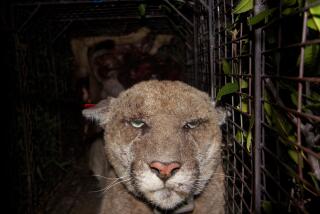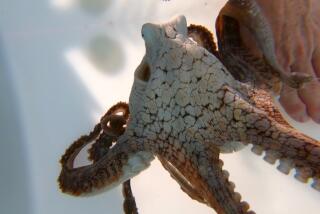Foie gras isnât forever
In 2004, California enacted a law I wrote that gave the foie gras industry until July 2012 to find an alternative to force-feeding ducks. That deadline is fast approaching.
Foie gras, French for âfatty liver,â is produced from the diseased and grossly enlarged liver of a duck or goose that has been force-fed grain. Multiple times each day for several weeks before slaughter, a pipe is shoved down the birdsâ throats and theyâre pumped full of mash, causing their livers to swell to more than 10 times normal size. The resulting fatty liver is served in fewer than 1% of Californiaâs restaurants. Most people would find it hard to stomach eating any part of a diseased animal, but in the case of foie gras, itâs the diseased organ itself on which consumers dine.
In drafting my bill, I worked with Californiaâs only foie gras producer â Guillermo Gonzalez with Sonoma Foie Gras â to give the industry time to find an alternative to force-feeding. In turn, Gonzalez urged Gov. Arnold Schwarzeneggerâs signature on the bill. At the time he wrote: âI have the moral stature to accept that if within the seven-and-a-half years established by S.B. 1520, science and government donât arrive to the conclusion that the methods used in our foie gras production are acceptable ... I will be ready to quit.â
Unfortunately, producers have not used those years to develop an alternative production method and instead continue to use the same cruel force-feeding, which means that the wait is over and, come July, the production and sale of foie gras from force-fed animals will be prohibited.
At least I hope they will be.
A group representing the countryâs handful of foie gras farmers, including Gonzalez, has launched a petition drive to repeal SB 1520 in advance of the banâs taking effect. And I just learned that a pro-foie gras group has retained not one but two powerful lobbying firms in Sacramento to seek repeal of the law. One of these firms is the same one that represented Gonzalez in 2004 when he urged enactment of the bill. What happened to âmoral statureâ?
During the last seven years, awareness of the cruelty of force-feeding has grown. More than 100 California restaurants have voluntarily dropped foie gras from their menus ahead of the ban, and the city councils of Los Angeles, San Diego and San Francisco have passed resolutions commending them for doing so and calling on others to join them.
Wolfgang Puck recently sent a letter to his fellow restaurateurs in the state urging them to join him in supporting the law.
And retailers including Safeway, Costco, Target and Whole Foods Market now refuse to carry foie gras.
These principled actions are in sharp contrast to the handful of restaurants throughout the state that have recently held foie gras feasts in an attempt to rally support for overturning the ban.
It is common sense that birds donât want to be force-fed several times a day. They donât want to take in vastly more food than they would otherwise. Not surprisingly, the force-feeding is harmful. The European Unionâs Scientific Veterinary Committee reviewed the science on the issue and found that mortality rates for force-fed ducks and geese are 10 to 20 times normal. This finding has led 11 EU countries to ban force-feeding.
And Israel, once the fourth-largest producer of foie gras, has ended the practice in the wake of a ruling by the Israeli Supreme Court that force-feeding violates the countryâs animal cruelty laws.
The National Advertising Division of the Better Business Bureau also considered the topic and ruled that claims made by DâArtagnan, the largest U.S. distributor of foie gras, were deceptive and misleading. The prestigious Pew Commission on Industrial Farm Animal Production â chaired by former Kansas Gov. John Carlin and including, among others, former U.S. Secretary of Agriculture Dan Glickman and Dr. Michael Blackwell, former dean of the University of Tennesseeâs College of Veterinary Medicine â has also called for an end to force-feeding ducks and geese to make foie gras.
The time has come for this humane and common-sense law to finally take effect. Many years have passed since the Legislature discussed this important issue. We donât need to re-debate the cruelty of force-feeding. For the sake of animals and the Californians who care about them, we should simply celebrate that the 7 1/2 years of waiting is almost over.
John Burton is the chairman of the California Democratic Party and wrote Senate Bill 1520 while he served as president pro tem of the state Senate in 2004.
More to Read
A cure for the common opinion
Get thought-provoking perspectives with our weekly newsletter.
You may occasionally receive promotional content from the Los Angeles Times.










